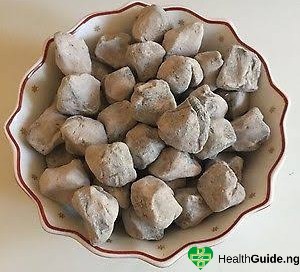As you anticipate the arrival of your baby, you will need to prepare and get things in place.
The buildup to childbirth can be a hectic time, so it can be hard to remember to pack everything that you will need at the hospital for delivery.
However, you don’t have to worry. This article provides you with a comprehensive list of items required during delivery in Nigeria.
These hospital essentials for delivery are meant to cater to your immediate needs during and after the delivery process.
It also includes important items for the baby. It is vital to note down and get these hospital items for baby delivery in Nigeria.
What To Take To Hospital For Delivery In Nigeria
If you’re planning to deliver your baby in a private or public hospital in Nigeria, here is the list of items you need to get. We have divided them into things you will need yourself and things you need your baby.
Nightgown: A nightgown provides comfort and ease of movement during the recovery period. It is made from soft and breathable fabric which is gentle on the skin and helps to regulate body temperature.
Additionally, a nightgown is designed to accommodate postpartum bleeding and allows for easy access for breastfeeding, making it a practical and convenient choice for new mothers.
Medications and supplements you are taking: Medications and supplements are crucial items necessary for delivery because they help to manage pain, prevent infections, and promote healing.
It is important to have these items on hand to ensure that any health issues that arise during delivery can be addressed promptly.
Moreover, taking supplements such as iron and folic acid can help to replenish nutrients lost during delivery and aid in the recovery process.
Soft flat slippers: Soft flat slippers provide comfort and stability while walking around the hospital.
They are easy to slip on and off, making them a convenient choice for new mothers who may be experiencing swelling or discomfort in their feet.
Additionally, soft flat slippers help to prevent slips and falls, which is particularly important during the recovery period.
Bra and nursing bra: A bra and nursing bra can give you support and comfort during the recovery period.
A well-fitting bra helps to prevent breast engorgement and discomfort, while a nursing bra allows for easy access during breastfeeding.
It is important to choose a bra that is comfortable and provides adequate support to prevent back pain and other discomforts.
Massage oil: Massage oil is an important item necessary for delivery because it helps to relieve muscle tension and promote relaxation.
It can be used during labor to provide comfort and ease pain, and can also be used postpartum to promote healing and relieve soreness.
Creams for nipple soreness: Creams for nipple soreness such as lanolin are essential items necessary for delivery because they help to soothe and protect sore nipples during breastfeeding.
Nipple soreness is a common issue for new mothers and can be particularly uncomfortable during the recovery period.
Using a cream such as lanolin can help to prevent cracking and promote healing, making it an important item to have on hand.
Breast pads: Breast pads help to prevent leakage during breastfeeding. They are designed to absorb milk and prevent it from leaking onto clothing, which can be embarrassing and uncomfortable.
Breast pads come in a variety of sizes and materials, making it easy to find a comfortable and effective option.
It is important to have breast pads on hand to prevent leaks and maintain hygiene during the recovery period.
Socks: Socks are useful because they help to keep your feet warm and comfortable during the recovery period.
Hospitals can be cold, and having warm socks can help to prevent discomfort and promote relaxation.
Furthermore, socks can help to prevent slips and falls, which is particularly important for new mothers who may be experiencing swelling or discomfort in their feet.
Underwear: Underwear is an essential item necessary for delivery because it provides support and comfort during the recovery period.
It is important to choose underwear that is comfortable and provides adequate support to prevent discomfort and promote healing.
Also, opt for an underwear that is designed to accommodate postpartum bleeding can help to prevent leaks and maintain hygiene.
Snacks and beverages: Having snacks and beverages will give your body energy and hydration during labor and recovery.
Labor can be a long and exhausting process, and having snacks and beverages on hand can help to maintain energy levels and prevent dehydration.
In addition, having snacks and beverages available during the recovery period can help to promote healing and prevent discomfort.

Clean wrappers: Clean wrappers are an important item necessary for delivery in Nigeria because they help to maintain hygiene and prevent infection.
Wrappers can be used to cover you and your baby preventing them from coming into contact with germs and bacteria.
Hair ties: Hair ties are an important item necessary for delivery because they help to keep hair out of the way during labor and recovery.
Labor can be a messy process, and having hair tied back can help to prevent discomfort and maintain hygiene.
Additionally, having hair tied back can help to prevent hair from getting in the way during breastfeeding and other activities.
Olive oil: Olive oil is an important item necessary for delivery because it can be used to soothe and protect the perineum during labor.
Massaging olive oil onto the perineum can help to prevent tearing and promote healing, making it an important item to have on hand.
Toothbrush and toothpaste: Toothbrush and toothpaste are essential items because they help to maintain oral hygiene during the recovery period.
It is important to brush teeth regularly to prevent bad breath, gum disease, and other oral health issues.
Lip balm: Lip balm is an important item necessary for delivery because it helps to prevent dry and cracked lips.
Hospitals can be dry, and having lip balm on hand can help to prevent discomfort and maintain hygiene.
Vacuum Flask: A vacuum flask is an important item necessary for delivery because it helps to keep water, beverages warm or cold for extended periods.
This can be particularly useful during labor and recovery when access to a refrigerator or microwave may be limited.
Cup & spoon: A cup and spoon are useful for consuming snacks, beverages, and medications. It is important to choose a cup and spoon that are easy to clean and maintain hygiene during the recovery period.
Body lotion and deodorant: Body lotion and deodorant are important items necessary for delivery because they help to maintain hygiene and promote a sense of well-being.
Using body lotion can help to prevent dry and itchy skin, while using deodorant can help to prevent body odor.
Comfortable and loose-fitting dress to wear home: A comfortable and loose-fitting dress to wear home is an important item necessary for delivery because it provides comfort and ease of movement during the journey home.
It is important to choose a dress that is easy to put on and take off, and that provides adequate coverage and support.
Hospital bags: A hospital bags provide a convenient and organized way to transport all the necessary items to the hospital. Having a hospital bag packed and ready to go can help to reduce stress and ensure that nothing important is forgotten.
Phone list of emergency contacts: A phone list of emergency contacts is crucial as it gives a quick and easy access to important phone numbers in case of an emergency. This can be particularly useful during labor and delivery when time is of the essence.
Delivery mat: A delivery mat is an important item necessary for delivery because it provides a clean and comfortable surface for delivery.
Delivery mats are designed to be disposable and can help to maintain hygiene and prevent infection during delivery.
Hospital admission card: A hospital admission card typically provides important information about the patient and their medical history.
This card can be used by hospital staff to provide appropriate care and treatment during the delivery and recovery period.
Pregnancy medical file: A pregnancy medical file is an important item necessary for delivery because it contains important medical information about the patient and their pregnancy.
Summary of Items for Mothers:
- Nightgown
- Medications and supplements you are taking
- Soft flat slippers
- Bra and nursing bra
- Massage oil
- Creams for nipple soreness e.g lanolin
- Breast pads
- Socks
- Underwear
- Snacks and beverages
- Clean wrappers
- Hair ties
- Olive oil
- Toothbrush and toothpaste
- Hairbrush
- Lip balm
- Vacuum Flask
- Cup & spoon
- Body lotion and deodorant
- Comfortable and loose-fitting dress to wear home
- Hospital bags (Buy on Jumia)
- Phone charger and power bank
- Phone list of emergency contacts
- Delivery mat (Buy on Jumia)
- Hospital admission card
- Pregnancy medical file.
Items for Baby:
- A comfortable outfit for baby to wear home
- Shawl or baby blanket
- Baby Towel
- Flannel Gown
- Methylated spirit and cotton wool
- Baby Wipes
- Baby combs and hairbrush
- Pacifiers and bibs
- Baby toiletries
- Soft sponge for baby
- Baby mosquito net (Buy on Jumia)
- Baby oil and Lotion
- Baby socks
- Umbilical cord clamps (Buy on Jumia)
- Infant mucus extractor (Buy on Jumia)
- Baby car seat (Buy on Jumia)
- Baby hat.

Other Items Required for Delivery in Nigeria:
- Spare cash
- Items that comfort you, such as prayer beads, a bible, a stress ball, and photographs.
- Books and magazines
- Cameras
- Music player
- Rechargeable fan.
Having this list of items required for delivery in Nigeria will ensure that you are fully prepared for delivery. You should start purchasing and getting them ready at least a month before your expected date of delivery.
We wish you a safe delivery and a healthy baby!
YOU SHOULD ALSO READ:
- 5 Healthy Nigerian Foods for Pregnant Women
- 7 Best Exercises for Pregnant Women
- 5 Important Things to Do After Childbirth
- 5 Important Things to Do After Childbirth
- How To Keep Your Womb Healthy
- 5 Healthy Nigerian Foods for Pregnant Women
- Kegel Exercises For Women: A Beginner’s Guide
- 5 Things To Consider When Choosing A Hospital For Delivery In Nigeria
- 12 Nigerian Foods That Boost Breast milk Production
- 8 Healthy Nigerian Foods for Babies
- Cryptic Pregnancy In Nigeria: What You Should Know
- 5 Effective Exercises For Menstrual Cramps
- 7 Best Exercises for Pregnant Women
- 7 Fitness Tips for Busy Nigerian Moms
Collins Nwokolo is a human physiologist, writer and health enthusiast. He loves writing helpful articles on health and fitness, which he enjoys sharing with everyone.









